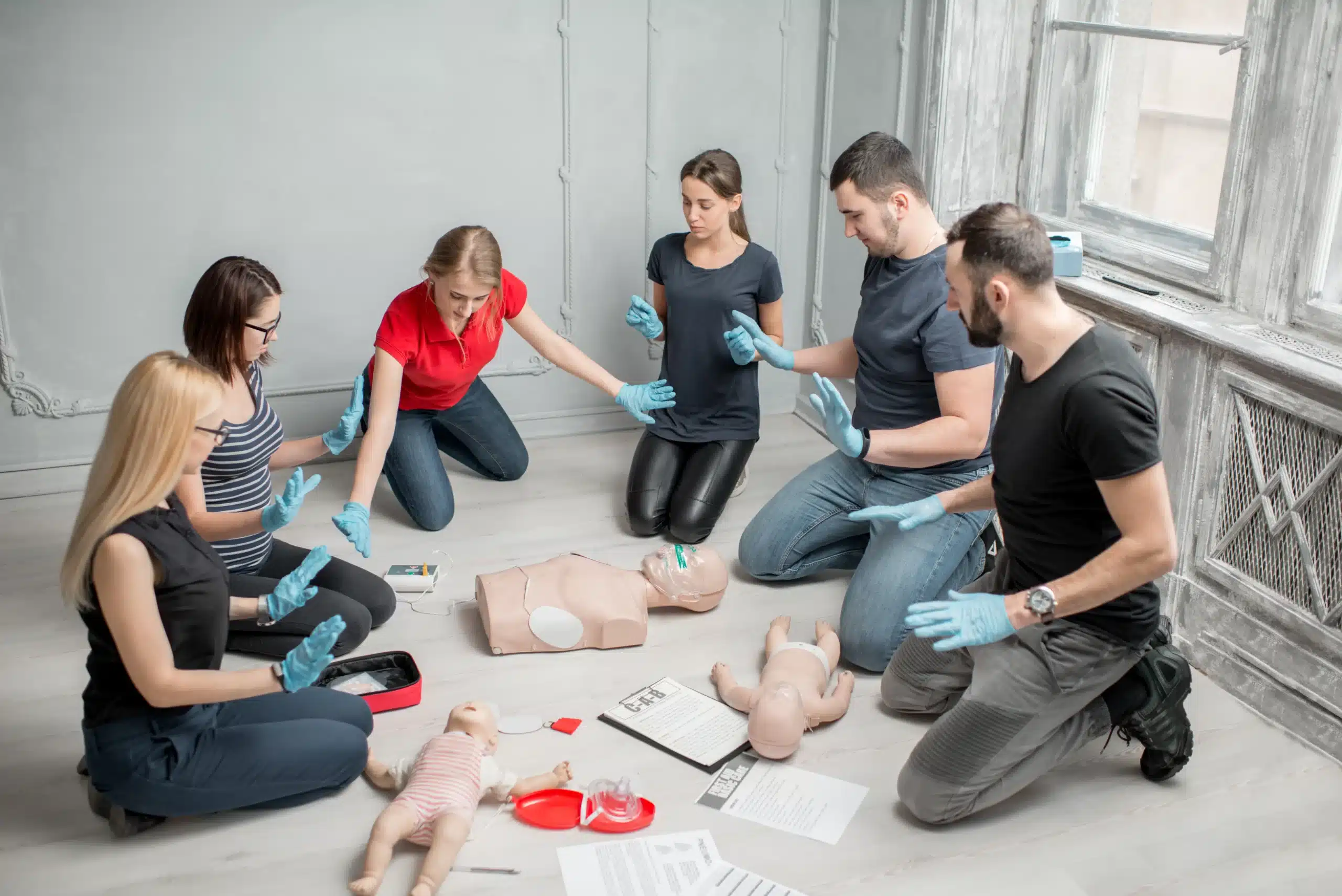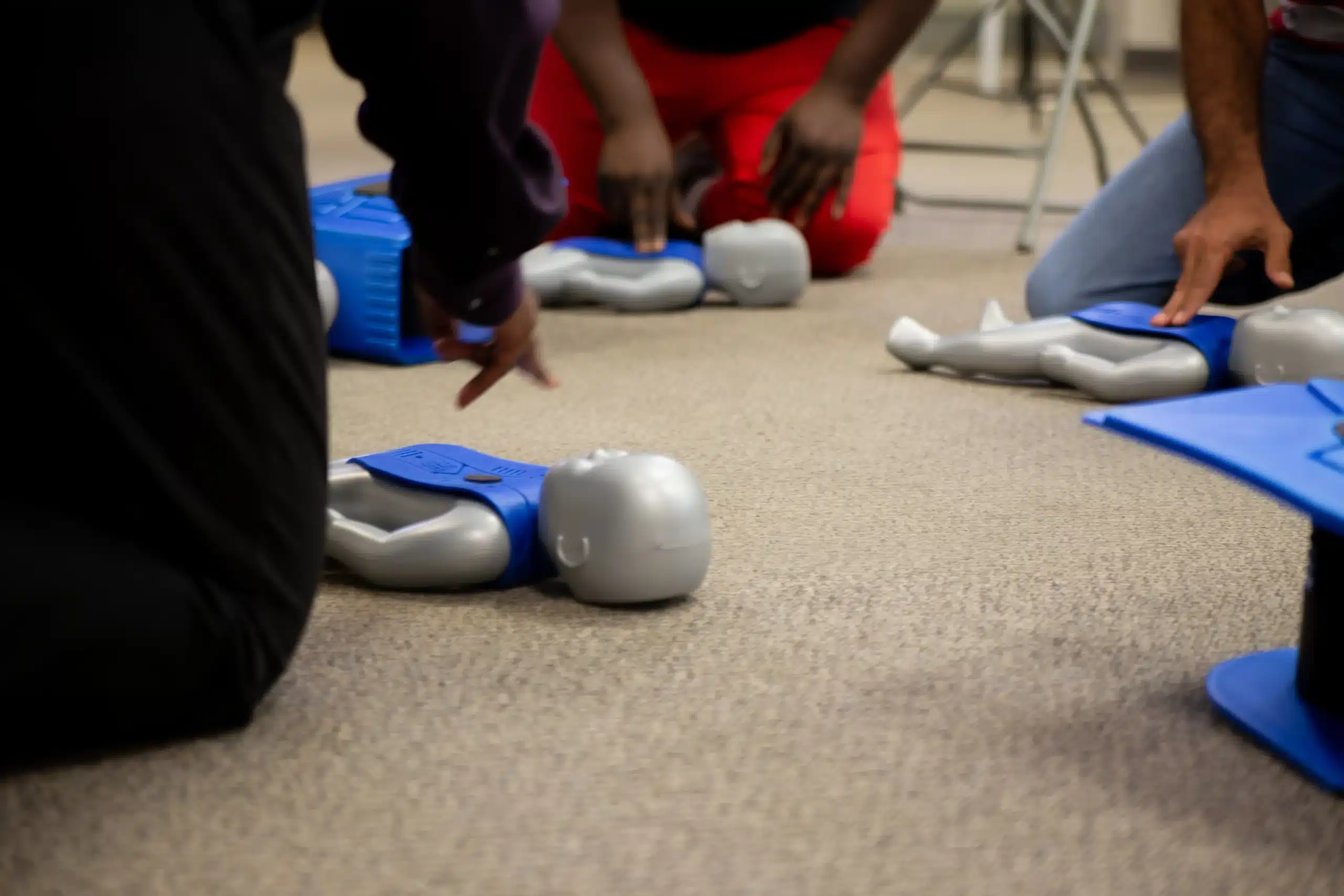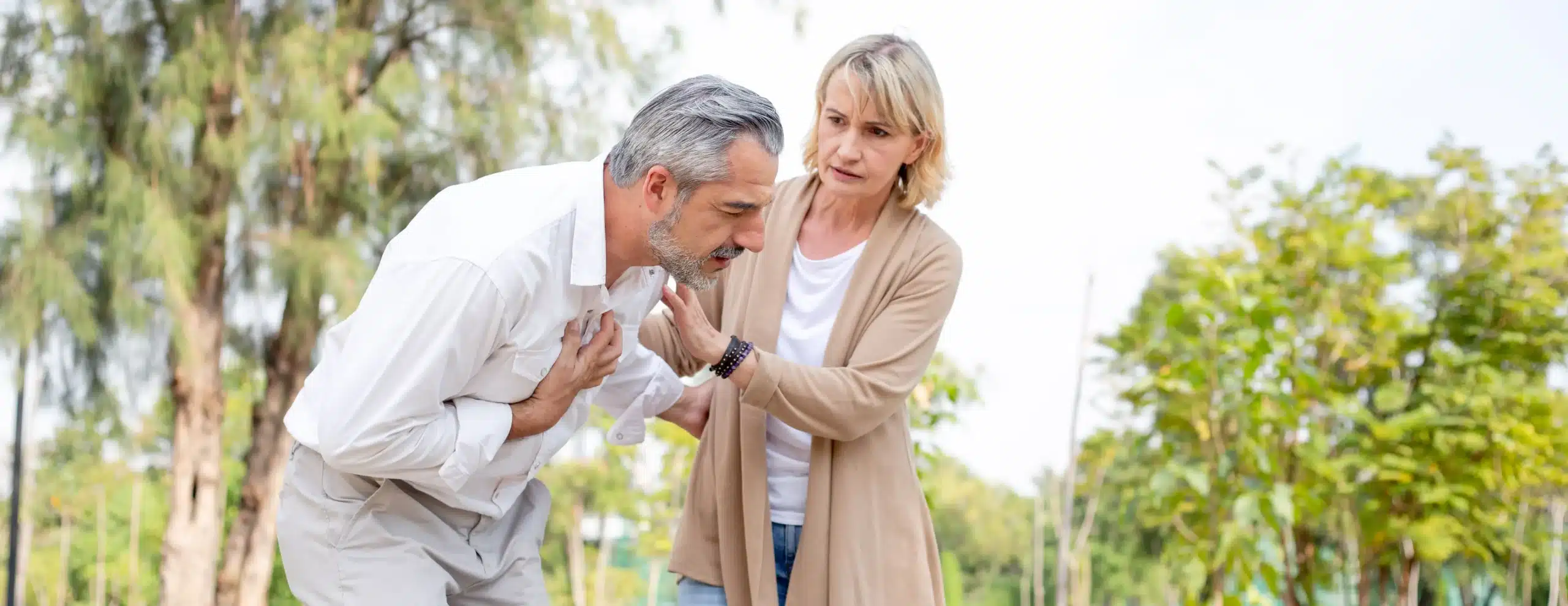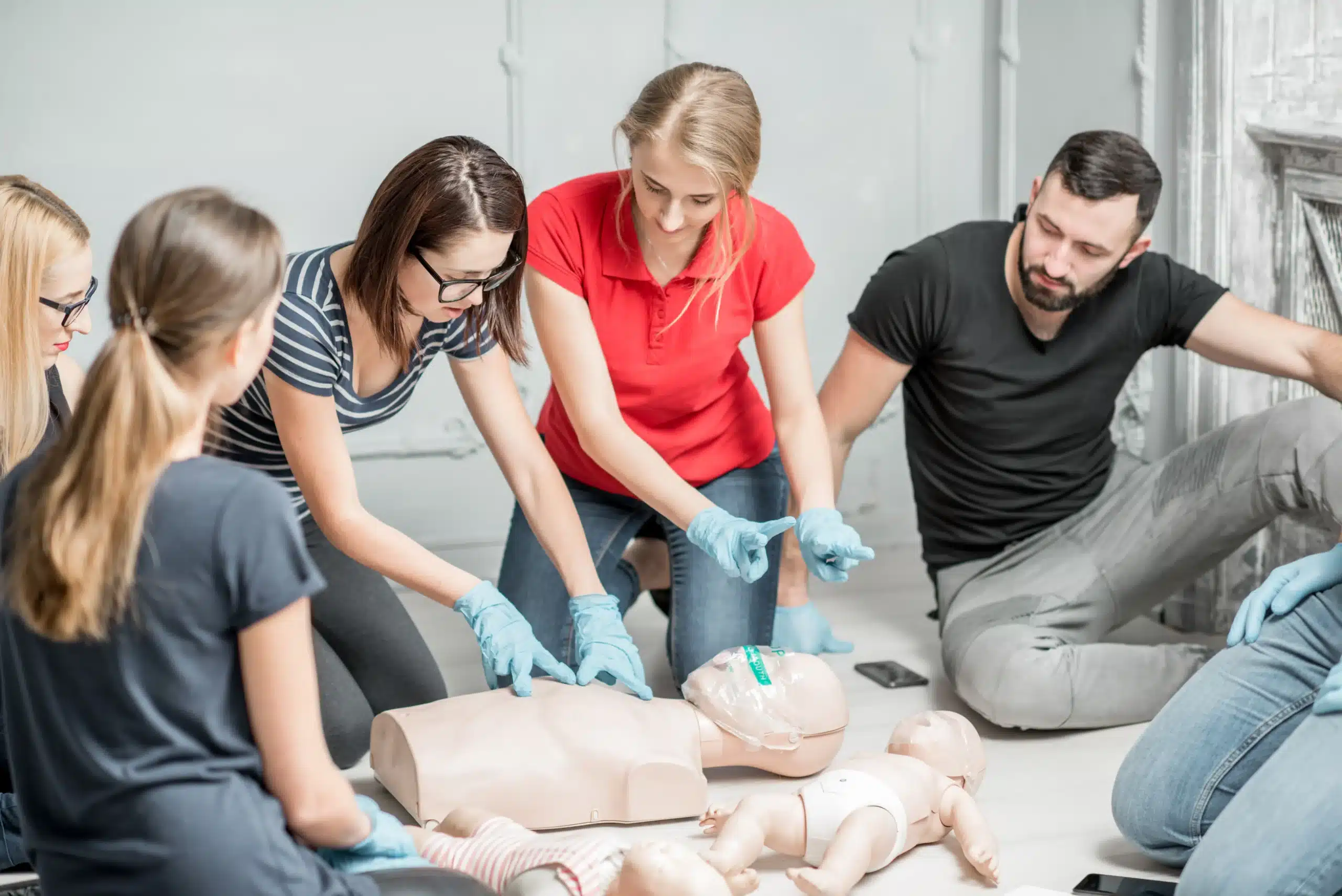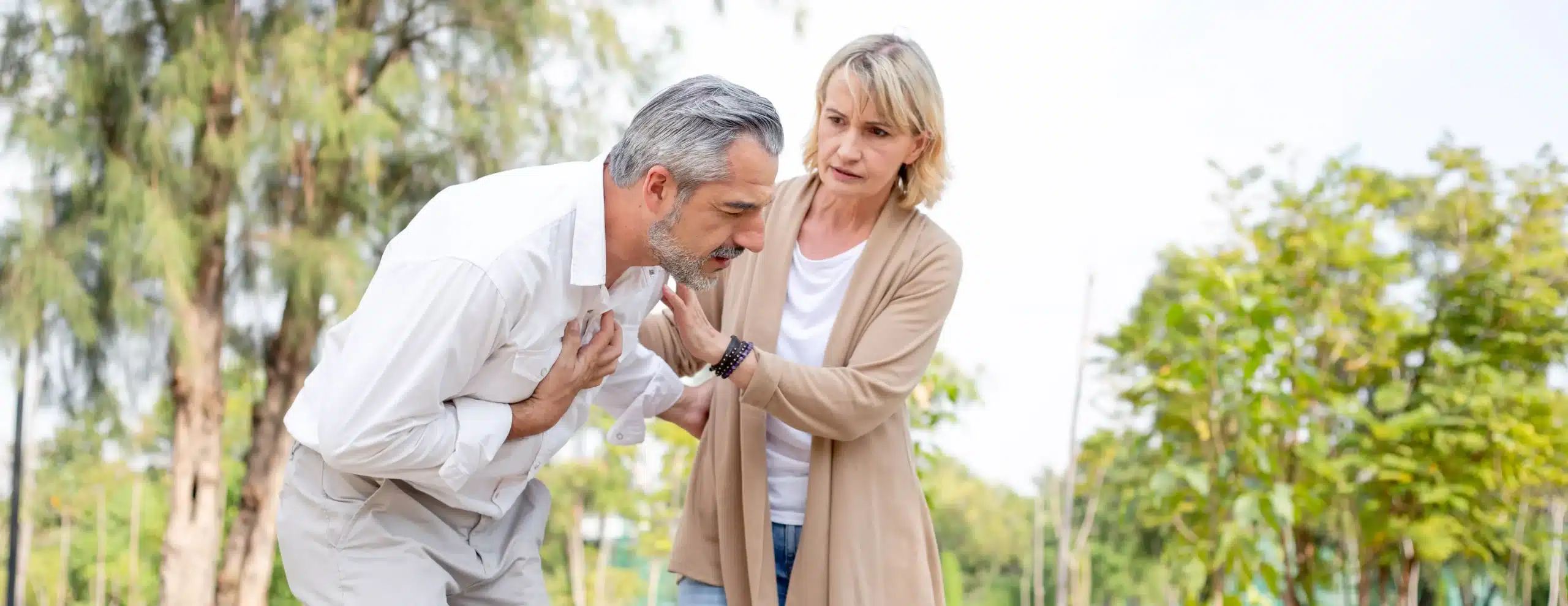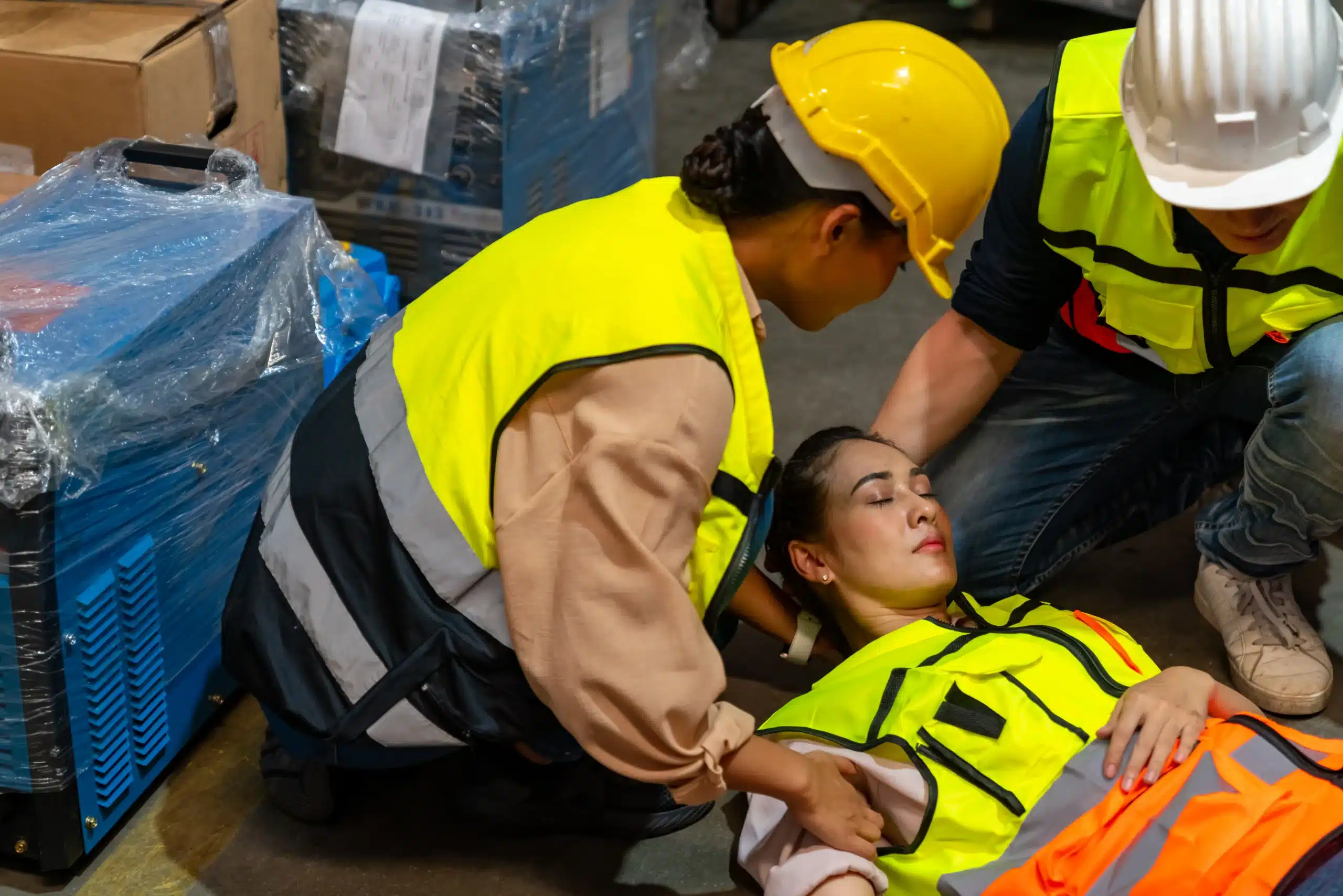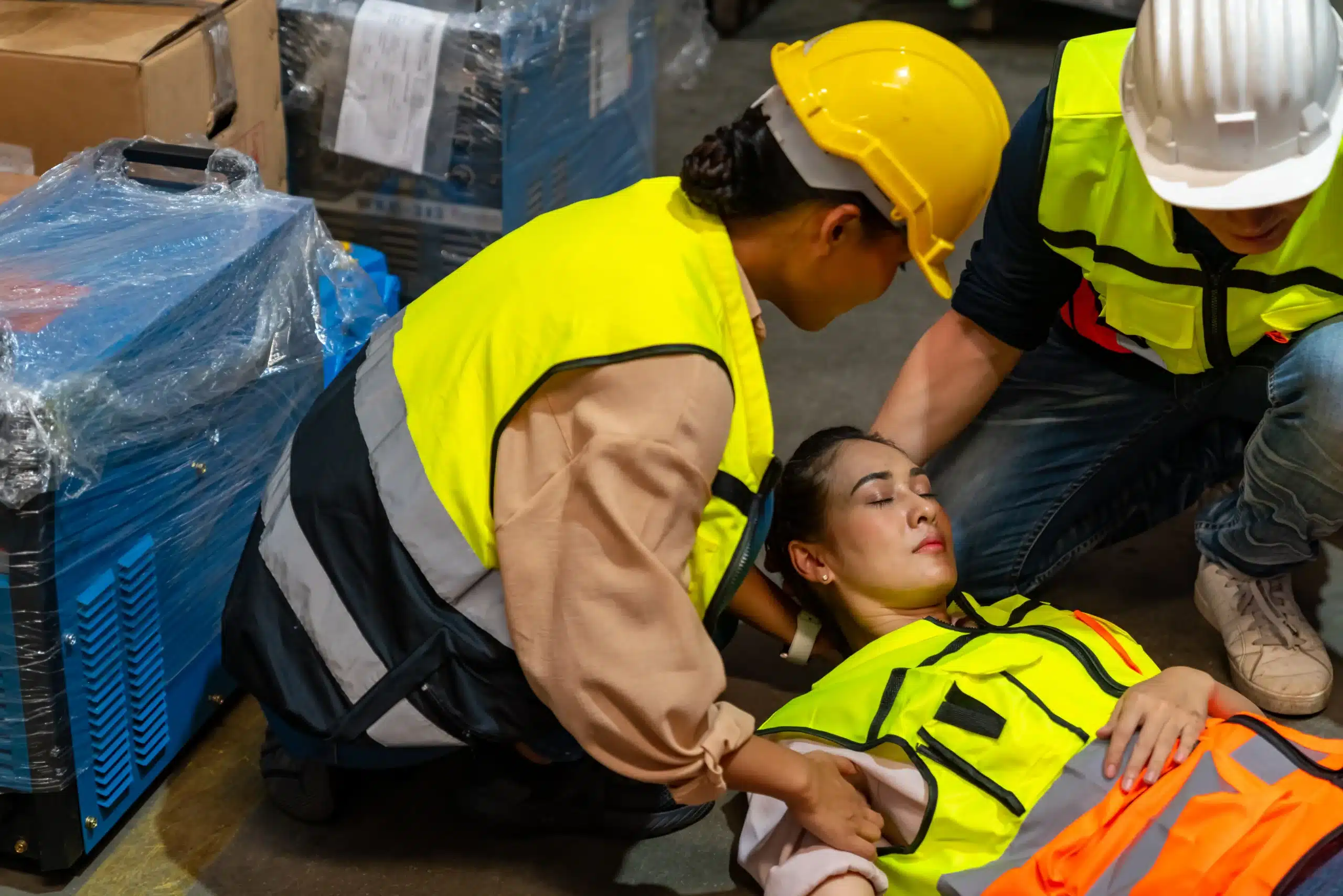As a healthcare provider, staying up-to-date with your certifications is non-negotiable, not only for your career but for the well-being of your patients. Basic Life Support (BLS) skills are fundamental, and keeping them sharp is crucial. Whether you’re a seasoned professional or just starting out, knowing where to find reliable and convenient recertification is key. This guide breaks down everything you need to know about AHA BLS recertification, from understanding the process to finding a course near you. If you’re searching for “AHA BLS recertification near me,” you’re in the right place. We’ll cover costs, what to expect, and how to choose the right provider, so you can confidently maintain your skills and continue providing top-notch care.
Key Takeaways
- BLS Recertification Is Crucial for Healthcare Professionals: Staying up-to-date with your BLS skills is vital for providing safe and effective patient care. Regular renewal demonstrates your commitment to best practices and often fulfills workplace requirements.
- Finding a Convenient and Affordable Course Is Easy: Numerous options exist, including in-person training, online courses, and blended learning formats. Seek out AHA-accredited providers like Berkeley CPR Classes or the American Red Cross for a recognized certification.
- Updated BLS Skills Benefit Everyone: Maintaining your certification not only enhances your professional qualifications but also equips you to assist others in emergencies, whether at work, at home, or out in the community. Plan your recertification ahead of time to avoid any gaps in your credentials.
What is AHA BLS Recertification?
AHA BLS Recertification is how healthcare providers refresh their Basic Life Support skills and maintain their credentials. The American Heart Association (AHA) offers a few ways to renew your BLS card, including convenient online courses and traditional in-person classes. A BLS renewal course works for healthcare providers whose certification is still current or recently expired. It’s a quick way to brush up on your knowledge and stay on top of the latest life-saving techniques.
Why Keep Your Certification Current?
Staying current with your BLS certification is important for several reasons. It allows you to confidently and effectively provide safe patient care. Many healthcare roles require it for employment. Plus, maintaining your skills can truly make a difference in emergencies. Your certification lasts for two years. There’s no grace period after it expires, so be sure to recertify on time.
Who Needs Recertification?
Many healthcare professionals, including doctors, nurses, paramedics, EMTs, and other healthcare providers, need BLS certification. Anyone working in healthcare where they might respond to cardiac or respiratory emergencies benefits from this training. Beyond typical healthcare settings, many other professions—like lifeguards, fitness instructors, childcare providers, and teachers—also require or recommend BLS certification. Learning CPR, how to use an AED, and how to recognize emergencies makes you a valuable asset at work and at home. You’re more prepared to help family, friends, or even strangers should the need arise. Think of BLS recertification as an investment in your professional skills and your ability to help others.
Find AHA BLS Recertification Courses Near You
So, you’re ready to recertify your BLS skills? Great! Finding the right course is easier than you think. Whether you prefer hands-on learning or the flexibility of online study, there are options to fit your needs and schedule. Let’s explore how to find AHA BLS recertification courses near you.
Local Training Centers
If you thrive in a classroom setting and value face-to-face instruction, in-person training is a great choice. Many local training centers offer AHA-certified BLS renewal courses. For example, providers like Berkeley CPR Classes offer BLS courses for a reasonable price, covering everything from the online coursework and skills test to your official certification card. For those in the Berkeley area, Safety Training Seminars offers various American Heart Association-certified courses, including CPR, BLS, ACLS, and PALS. Check their websites for schedules and course availability.
Online Options
Prefer to learn at your own pace? Online BLS renewal courses are readily available and accepted, provided they come from a recognized provider like the American Heart Association or the American Red Cross. This format offers flexibility, allowing you to complete the coursework whenever and wherever it’s convenient. Just make sure the online course includes a hands-on skills check component, often conducted through a local training center affiliated with the online provider.
Course Locator Resources
Need help finding a course? The American Heart Association provides resources to simplify your search. Their website details various BLS course options, including blended learning and instructor-led formats. For instructors looking to stay up-to-date, the AHA’s BLS Product & Course Orientation (P&CO) offers valuable insights into the latest course design and teaching strategies. These resources can help you locate certified training centers and courses that meet your specific requirements.
Recertify Your AHA BLS Certification
Getting recertified in Basic Life Support (BLS) is straightforward. This section covers what to expect during the recertification process. Whether you’re a healthcare provider, a teacher, or anyone needing BLS certification, understanding the process will help you prepare.
Course Format and Duration
The American Heart Association (AHA) offers several ways to renew your BLS certification, including in-person and online courses. This flexibility lets you pick the format that best suits your schedule and learning style. Berkeley CPR Classes offers a variety of course formats to accommodate busy professionals and those with scheduling constraints. For those looking for in-person training, check out our BLS renewal courses.
In-Person vs. Online Courses
In-person BLS renewal courses provide hands-on training with instructors, allowing for immediate feedback and personalized guidance. You can find in-person Alameda, CA, offering a practical learning experience. Online courses offer the convenience of learning at your own pace, anytime, anywhere. Blended learning combines online modules with in-person skills sessions, providing a balance of convenience and practical application.
Skills Assessment and Practice
Most BLS renewal courses include training materials, a skills testing session, and your certification card upon successful completion. This comprehensive approach ensures you learn the necessary skills and demonstrate proficiency. The BLS Provider Course is regularly updated, reflecting the latest science in the 2020 AHA Guidelines for CPR and Emergency Cardiovascular Care. This means your training will always be current and relevant, equipping you with the most up-to-date techniques.
AHA BLS Recertification: Cost and Value
Getting your BLS recertification is an investment in your career and the safety of those around you. Understanding the costs and what influences them can help you budget effectively and find the best value.
Typical Prices
BLS recertification prices vary based on location, course format (online or in-person), and the training provider. Generally, expect to pay anywhere from $50 to $120 for BLS renewal. For example, providers like Berkeley CPR Classes offer a BLS course for around $120, which includes online coursework, the skills test, and your certification card. While some organizations, like the National CPR Foundation, offer online recertification for around $15, remember that these online-only options may not meet all workplace requirements. Many employers and regulatory bodies mandate in-person skills testing.
Factors Affecting Cost
Several factors contribute to the overall cost of BLS recertification. Most BLS renewal courses cover training materials, the skills testing session, and your certification card. The inclusion of online learning modules, printed materials, and the instructor’s expertise also play a role. Location can influence pricing, with courses in metropolitan areas sometimes costing more. Finally, the type of course—in-person versus blended learning (online coursework combined with in-person skills testing)—can impact the final price. The American Heart Association offers various options for BLS certification and renewal, including both in-person and online formats.
Discounts and Promotions
Look for potential discounts or promotions to make your recertification more affordable. Some providers, like Berkeley CPR Classes, offer discounts for group classes, a great option if you’re recertifying with colleagues or friends. Check if your employer offers reimbursement or subsidies for healthcare-related training. Also, keep an eye out for seasonal promotions or special offers that training centers may run. The American Heart Association provides resources for BLS renewal, including information on blended learning and instructor-led courses that may offer savings. Exploring these options helps you find high-quality BLS recertification that fits your budget.
Choose the Right AHA BLS Recertification Provider
Picking the right provider for your BLS recertification is key to a smooth and valuable experience. Here’s what to consider:
Accreditation and Recognition
First and foremost, ensure your provider is accredited by the American Heart Association (AHA). AHA accreditation guarantees the course meets their rigorous standards, and your certification will be widely accepted. The AHA offers various learning formats, including in-person and online courses, making the training accessible to a wide range of people.
Instructor Qualifications
A good BLS renewal provider offers more than just the course itself. Look for instructors who are not only AHA-certified but also experienced medical professionals. Their real-world insights can significantly enhance your learning. Knowledgeable instructors can answer your specific questions and provide relevant examples, making the information more practical and memorable. Check out reviews and testimonials to get a sense of the instructor’s teaching style and expertise.
Flexibility and Scheduling
Your schedule shouldn’t be a barrier to recertification. With options ranging from in-person classes to online modules and blended learning, you can choose the format that best suits your needs. Consider factors like your commute, work hours, and family commitments when making your decision. Some providers offer weekend or evening classes to accommodate busy schedules. If you prefer online learning, ensure the online portion is engaging and interactive. Berkeley CPR Classes offer flexible scheduling options.
Top AHA BLS Recertification Providers
Here are a few reputable providers to explore:
Berkeley CPR Classes
Berkeley CPR Classes offers AHA-certified BLS renewal courses designed to equip you with the necessary skills and knowledge. They are known for their commitment to customer service and a low price guarantee, with classes available daily in over 60 cities. The Berkeley location serves Alameda, Oakland, and Berkeley. They also offer discount group classes.
American Red Cross
The American Red Cross is a well-known provider of BLS certification, offering both in-person and online courses. They have a long-standing reputation and offer courses nationwide.
National CPR Foundation
National CPR Foundation offers BLS recertification for healthcare professionals.
ProCPR
ProCPR offers a variety of online CPR and BLS courses that are AHA compliant.
CPR Today
CPR Today provides a range of AHA-certified courses, including BLS recertification options. They focus on making renewal stress-free and convenient.
Prepare for Your AHA BLS Recertification
Getting ready for your BLS recertification is straightforward. With a little prep work, you’ll be ready to renew your skills and get back to work. This section covers everything you need to know before starting your BLS renewal course.
Study Materials and Resources
The American Heart Association (AHA) offers resources to help you refresh your skills. You can find the latest guidelines and updated course materials on the AHA website. Many BLS renewal courses, like those offered by Berkeley CPR Classes, include training materials, so check with your provider to see what’s covered. This often streamlines the process, covering your skills testing and certification card processing efficiently.
Pre-Course Requirements
Before signing up for a BLS renewal course, ensure you meet the prerequisites. A BLS renewal course is for healthcare providers with current or recently expired certification. If your certification has lapsed, you might need to retake the full BLS course. Check with your chosen provider or the AHA directly for specific requirements. Online BLS renewal courses are accepted from recognized providers like the AHA or the American Red Cross.
Tips for Success
A little preparation goes a long way. First, find a BLS course that fits your learning style and schedule. With options ranging from in-person classes to online modules and blended learning, you can choose the format that works best for you. Berkeley CPR Classes offers a variety of course formats. Review the latest AHA guidelines before your course. The AHA’s BLS Product & Course Orientation (P&CO) helps you understand the current course design and teaching strategies. Finally, come prepared to participate actively. Hands-on practice is key to mastering BLS skills.
AHA BLS Recertification: Common Misconceptions
It’s easy to get confused about BLS recertification, especially with so much information online. Let’s clear up some common misconceptions so you can approach your renewal with confidence.
Expiration Misconception
One common misconception is that your BLS certification has a grace period. Unfortunately, that’s not true. BLS certification is valid for two years, and there’s no grace period after expiration. You must retake the full course if your certification lapses. Don’t wait until the last minute; check your card’s expiration date and plan accordingly. Staying current with your BLS certification is crucial, especially if your job depends on it.
Online Course Effectiveness
Another misconception is that online BLS recertification courses aren’t legitimate. Actually, online BLS certification is perfectly acceptable, as long as you choose a course from a recognized provider like the American Heart Association. Online courses offer a convenient way to renew, fitting easily into busy schedules. Just make sure the provider is accredited and offers the same curriculum as in-person classes. For reliable information on BLS renewal, check out this helpful guide.
Renewal Timing
Many people are unsure about when to renew their BLS certification. The best approach is to be proactive. Enroll in a BLS renewal course as soon as you realize your certification is expiring soon (or has expired within the last 30 days). This way, you avoid any gaps in your certification and maintain your qualifications without interruption.
Course Uniformity
There’s often confusion about the differences between BLS renewal courses. Generally, most BLS renewal courses follow a similar structure. They cover the same core training materials, skills testing, and certification card processing. This standardized approach ensures that participants receive consistent, high-quality training and certification, regardless of the provider.
Maintain Your BLS Certification
Keeping your BLS certification current is essential for healthcare professionals and anyone who wants to be prepared for an emergency. It’s not just a good idea—it’s often a job requirement and ensures you can provide effective, high-quality care.
Renewal Timeline
BLS certification is valid for two years. There’s no grace period, so plan to retake the full course before your certification expires. Staying on top of your renewal ensures you’re always prepared to respond to emergencies. For a comprehensive guide to BLS renewal, check out this helpful resource from Heart Start CPR.
Stay Updated with AHA Guidelines
The American Heart Association (AHA) regularly updates its BLS guidelines to reflect the latest research and best practices. Recertification ensures you’re up-to-date on these changes, so you can provide the best possible care. The AHA also offers guidance for training centers that provide virtual skills options for BLS Provider courses using HeartCode BLS. Vitali Partners offers more information on these virtual options. For a helpful overview of the 2023 BLS Guideline updates, take a look at this resource from ProTrainings.
Career Impact and Professional Development
Maintaining your BLS certification demonstrates your commitment to professional growth and providing safe and effective patient care. It’s a common requirement for healthcare jobs and can significantly impact career advancement. Beyond professional requirements, CPR knowledge can save lives, even outside of a healthcare setting. CPR Classes Chicago highlights the importance of CPR knowledge for everyone, as it can be crucial in a home emergency. By staying current with your BLS certification, you meet professional standards and empower yourself to make a difference in critical situations.
Related Articles
- BLS Renewal in Oakland: Your Guide – Berkeley CPR Classes
- BLS Renewal in Berkeley: Your Go-To Guide – Berkeley CPR Classes
- HeartCode BLS in Alameda: Your Guide to Certification – Berkeley CPR Classes
- Pediatric Advanced Life Support (PALS) in Berkeley – Berkeley CPR Classes
- ACLS HeartCode Berkeley: Your Complete Guide – Berkeley CPR Classes
Frequently Asked Questions
How long is my BLS certification valid? Your BLS certification is valid for two years. There’s no grace period after it expires, so make sure you recertify before the expiration date on your card.
What’s the difference between recertification and taking the full BLS course? A BLS renewal course is a shorter, refresher course for those whose certification is current or recently expired. If your card has been expired for a while, you’ll likely need to take the full BLS course again.
Are online BLS recertification courses accepted? Yes, online BLS recertification courses are accepted if they are from a recognized provider like the American Heart Association or the American Red Cross and include a hands-on skills check component. Always confirm with your employer or regulatory body to ensure online certification meets their specific requirements.
Where can I find BLS recertification courses near me? You can find BLS recertification courses through various avenues. Check with your local hospitals, community centers, or training organizations like Berkeley CPR Classes. The American Heart Association website also offers a course locator tool to help you find certified training centers in your area.
How much does BLS recertification cost? The cost of BLS recertification varies depending on the training provider, location, and course format. Typically, it ranges from $50 to $120. Some providers offer discounts for group registrations, so inquire about those options if you’re recertifying with colleagues. Also, check if your employer offers any reimbursement for professional development courses.


